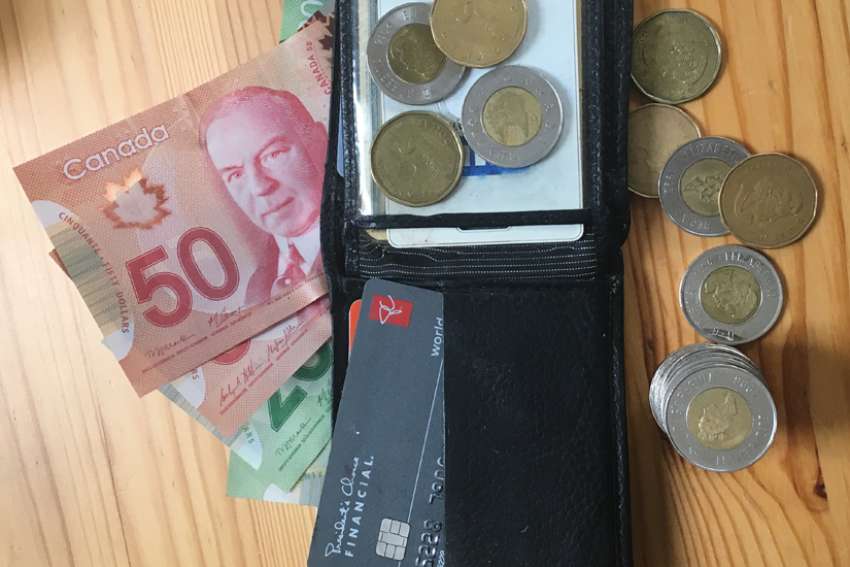Although he has now managed over $1 billion in funds at a national level, Perrone said of his early years: “I didn’t have much money, and I was hoping to change that.”
This led to a realization for him that “in order to use money as a Catholic, you had to have money.”
Perrone spoke at a recent virtual workshop titled “Using Money like a Catholic” hosted by Catholic Conscience, a civic and political engagement organization. The latest in its series of Catholic Civics workshops, it also featured Professor Michael Ryall from the University of Toronto’s Rotman School of Management.
In the panel discussion led by Catholic Conscience executive director Brendan Steven, the panelists shared perspectives on the responsible use of money at a personal, institutional and cultural level.
First came a discussion on personal finance that took up almost one-third of the 90-minute workshop. Emphasis was placed on the nature of gifts that God has given each individual, which may be used to build His kingdom on Earth through the responsible generation of wealth.
“We’re all rich in something,” said Steven. “A college student is likely not going to be the person rich in wealth, but they can often be the person rich in time.”
The “time value of money” is a well-known concept in the area of personal finance. According to popular education website Investopedia.com, it is defined as “the concept that money you have now is worth more than the identical sum in the future due to its potential earning capacity.”
Although the future impacts of money are undoubtedly important, Ryall advocates an approach more based in the present.
“I think that you need to live in the here and now,” he said. “You are here to help the people that you can look at, sit across the table from.”
All members of the panel agreed money is a valuable tool, but only if used properly. Scripture describes the dangers that arise when money becomes an object of desire. In Timothy 6:10 it is said that “the love of money is a root of all kinds of evils.” Such an idolatry of the luxuries made possible by wealth can be extremely destructive.
Ryall points to temptations in today’s society, which he terms “a secular culture that emphasizes an immediate gratification of wants.” He listed examples such as instant shipping from online retailers like Amazon or binge-watching “endless content on Netflix.”
According to Perrone, problems arise when you pay “too much attention to money” or neglect its importance. Younger generations seem to be searching for a middle ground. In a July 2020 research study conducted by Statistics Canada, 24.1 per cent of participants aged 15 to 34 expressed a desire to invest or save more of their income versus an average of 10.4 per cent for all older age groups studied.
The new generation of investors is concerned about the social impact of companies, with issues such as climate change being hot-button topics in today’s discourse. According to the Rainforest Action Network, Canadian banks popular among investors (such as Toronto Dominion and the Royal Bank of Canada) dominate financing of industries that critics deem to be destructive — oil development, for example.
Ryall adopts a warier perspective on the recent rise in activism against large corporations. “As an economist, I often think about equilibrium” he said. “Having people in a hateful, angry, tear-it-down state of mind is not an equilibria.”
Evidently, the decision of what to do with money is becoming more convoluted for young Canadians. For any still overwhelmed by the possibilities, Perrone gives a piece of simple advice.
“Whether we’re saving, investing — the test that I use is: Is my heart getting bigger, or is my heart getting smaller?”
(Stocking, 18, will begin pursuing a journalism degree from Carleton University in Ottawa in September.)


